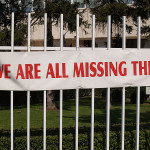“Ignorance is a cure for nothing” – W.E.B. Dubois
For the last stop on our route, we tour guides like to end with a brief anecdote about why we chose Yale. For me, the exact words of the speech change every time, but the larger theme is the same: community. That is why I chose Yale.
Yale was one of the last schools that I visited and, up until that point, it was not my first choice. When I stepped on Yale’s campus on that fateful day in October of 2013, I was stunned by the sheer beauty of campus. More compelling, however, were the people. From my very first moments on campus, the sense of community was palpable and that sensation has continued to grow with the number of Yalies I encounter. I never cease to be amazed by the complexity, authenticity and exceptional quality of the Yale student community.
A recent event on social media, however, has called my understanding of the Yale community into question and, based on conversations I have had regarding this issue, I am not the only one who has been somewhat disillusioned.
On April 9th, a Black freshman was bullied, berated and threatened on the social media platform Yik Yak. The comments posted were backlash resulting from an exchange that occurred on Facebook earlier in the day.
The incident was sparked by a status posted to the Facebook page “Overheard at Yale” describing a mugging that occurred near campus earlier that day. The status encouraged students to be on the lookout for a suspect described by the author of the post as a, “Black male wearing black hoodie, black scarf with white “F’s” on it, and black pants headed towards Whitney near Edwards.”
The young woman, concerned about what she feared was too vague of a depiction, responded urging the author of the post to increase the specificity of his description. The author responded with a more detailed outline of the suspect’s appearance, but was certain to include his frustration at the request in light of the crime – to which his wife had been made victim – and the sensitive emotional state of both he and his family as a result.
Other Facebook users also responded criticizing the Yale freshman for her commentary on the post, stating that the original description was “reasonable” and the request to edit it, “unnecessary” and “poorly timed.”
The conversation then shifted media platforms and devolved. What resulted can only be described as a baffling mixture of social commentary featuring brief moments of rational rhetoric – both critiquing and supporting the young woman’s request – completely overshadowed by reoccurring notes of bigotry, hatred and violence. Yik Yak was overflowing with comments calling out the freshman by name, berating her, and even threatening her life on a few occasions.
All of this occurred, of course, under the veil of anonymity making it impossible to identify any of the cyber-assailants by name, gender, or race.
The popular response to this incident has been a mixed bag of horror, skepticism and (shockingly) support and understanding for the cyberbullies. Students have responded to other reports of this event basically stating that responsibility lies with the victim. That is to say, if she had not made the request or criticism of the original Facebook post, none of this would have unfolded. Other students claim “hypersensitivity” is the issue, claiming minority students, specifically Black students, are too quick to brand a comment as “racist” or “micro-aggressive.”
One Yik Yak comment even affirmed the “angry Black woman” stereotype, citing it as accurate and using this case an example.
As a Black woman myself, someone who was incredibly disturbed by this incident and an opponent of bullying in any form, I disagree. “Hypersensitivity” is not the issue. This perceived “alertness” within the Black community and all communities of color is a result of a perceived threat.
An apparent danger to our community that has been in existence since our arrival to the Americas and, just recently, dominating news headlines, air waves and social media. Today’s media platforms have brought the racial undercurrent of our country to the surface, making it ever palpable and impossible to ignore. That is a kind of droning fear that white student cannot and will not ever be able to fully understand.
by Julianna Simms



